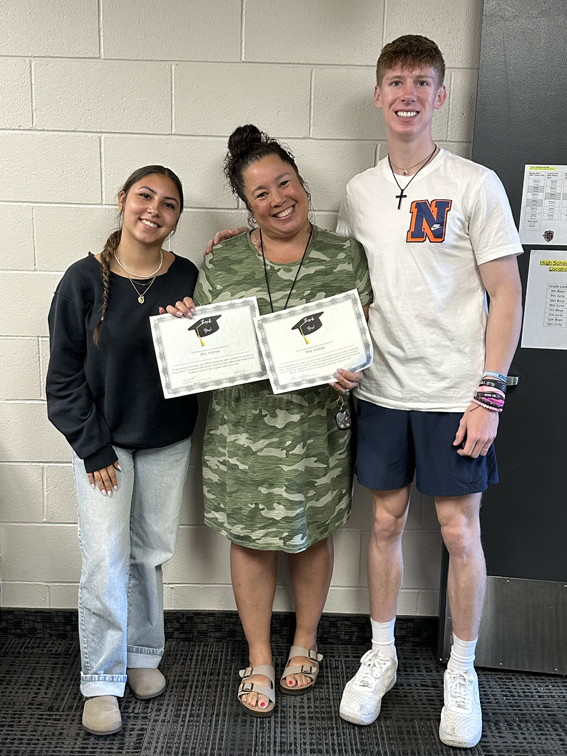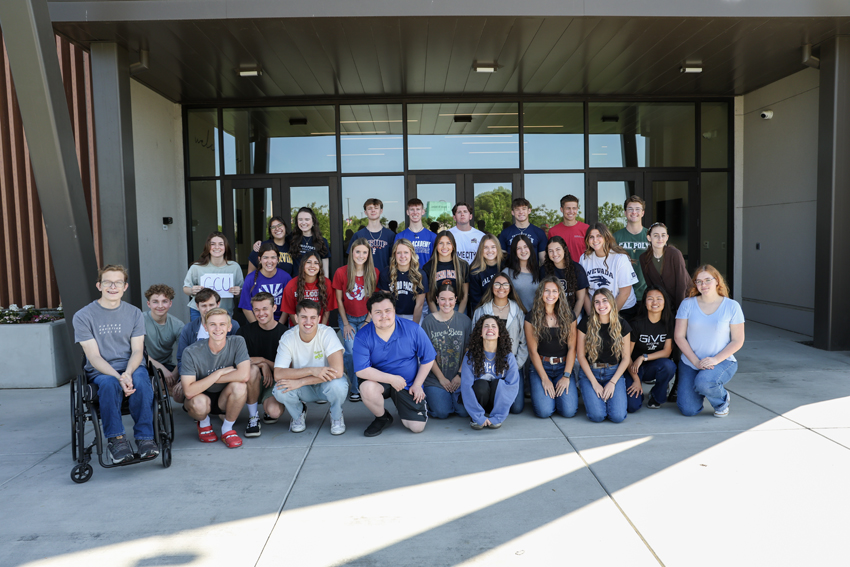Truancy has plagued schools for years, bringing with it severe consequences for students and administrators alike. Some attribute falling test scores and off-campus vandalism to students roaming the streets instead of attending classes.
While estimates are that between 1,600 and 2,400 Fresno Unified School District students skip classes each day out of 80,000, Mayor Alan Autry said at the Nov. 27 council session that 1,600 absences is too high.
The Fresno City Council rejected the first truancy law Autry proposed in February because of its strict punishments. After modifying the proposal and lessening the consequences, the council passed it with a 6-1 vote on Nov. 27. It goes into effect on Dec. 28 with Autry’s signature. The only council member to vote against the bill was Tom Boyajian.
The new law, called the Juvenile Accountability Ordinance, is designed to put more pressure on repeat offenders and their parents, such as a $100 fine or 20 to 40 hours of community service.
“We need to do everything we can as a community to keep kids in school and make sure they’re not committing crimes,” Council member Jerry Duncan said. Duncan was one of the mayor’s strongest supporters on the curfew. “The only thing we really did with the passing of the ordinance was set the punishment for truants.”
Despite the council’s overwhelming support, students’ opinions are varied on the subject.
“I don’t really care about this new law. I follow the rules anyway; it won’t change my lifestyle,” Michael Ward, ’03, said. “If you aren’t doing anything wrong, you have nothing to worry about.”
Other students feel that the curfew is an infringement on their rights.
“Curfews are tyrannical government laws,” John Stevenson, ’04, said. “They go beyond the bounds that a civil government should take in protecting its people.”
However, Fresno Christian administrators are confident that their students will not be affected or abused by the new law.
“I haven’t been overly worried because all students carry student body cards and that holds more weight with the authorities because we are a private school,” campus Superintendent Tim Wilkins said. “Personally, I don’t think that this is the way to fix truancy, but I haven’t researched enough to become an expert on the subject.”
Although the law does not apply to home-schooled youth it will still affect them, said Dean of Students George Freeman.
“This will affect home-schoolers in every aspect of their lives,” said Freeman. Freeman’s wife, Cindy, is superintendent of the Tower Christian School, which provides a Christian curriculum to parents wishing to home school their children. “Even though the ordinance states that it does not affect home-schoolers, how does a policeman in a car seeing a student between the ages of 12 and 17 outside his home know whether that student is home schooled or not?”
However, Fresno Unified School District (FUSD) spokesperson Jill Marmolejo says the purpose of the ordinance is not to punish youth who are on the streets, but to bring truants back into the classroom.
“Fresno Unified has spent months getting to the underlying causes of truancy,” Marmolejo said. “We have changed our approach and we are working with the city to correct truancy, and the ordinance is one piece of the entire program.”
According to Marmolejo, the three primary reasons for unexcused absences in the district are asthma, head lice, and the need for older youth to take care of younger siblings, allowing parents to work. Marmolejo also said that truancy is down over last school year.
In an effort to keep students in the classroom, FUSD runs the Keep Kids in School program for habitual truants. If students are caught outside school multiple times, they enter a process that involves a courtroom-like hearing in front of the Student Attendance Review Board (SARB), counseling and mediation. If the student shows no improvement, sanctions, such as fines or community service, can be issued against parents.
Keeping students in the classroom would have a fiscal advantage for districts as well. According to Steve Ward, chief operating officer for the Center for Advanced Research and Technology (CART), FUSD receives $25.90 a day from the state per student who is marked present.
The ordinance also received substantial backing from the Fresno Police Department (FPD). According to FPD statistics, there were 4,376 juvenile arrests between Jan. 1 and July 31.
“Reducing daytime crime, we believe, is a significant issue, but, more importantly, we’re keeping kids in school, which gives them a future,” Lt. John Fries said.
According to Fries, an ed-code existed before the Nov. 27 vote. That code gave police the ability to question juveniles an officer felt might be truant. Police only had the ability to notify a truant’s parents.
However, Freeman feels that enforcing stay-in-school laws is not the duty of the city’s police force.
“I think truancy is a school related issue, so educators should be solving this problem,” Freeman said. “It’s not worth a citywide ordinance. The schools should take care of the people who are truant.”
Eric Witters also contributed to this article.






